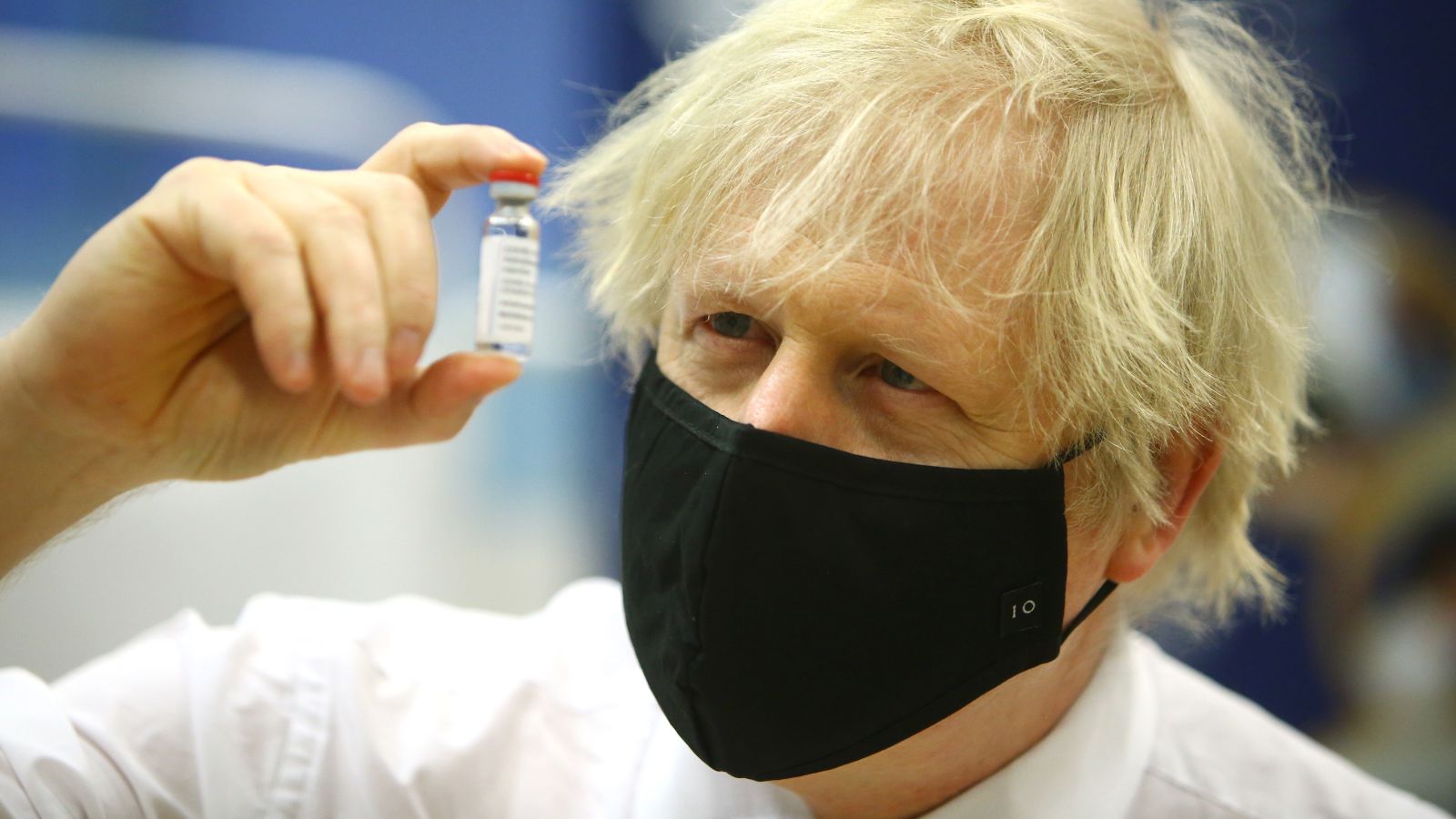The UK will share the majority of any future surplus COVID vaccines to help developing nations, Boris Johnson will confirm – as he urges world leaders to slash the time taken to create new jabs to 100 days.
The prime minister will chair a meeting of G7 leaders via videolink on Friday, during which he will call on them to say “never again” to another crisis such as COVID-19.
From the first COVID cases being reported in China at the end of 2019 to the first successful vaccine trial by Pfizer/BioNTech in November last year was more than 300 days.
And Mr Johnson will use the G7 meeting, the first of the UK’s presidency this year, to deliver a target of cutting the time to develop new vaccines by two-thirds to 100 days.
The 100-day ambition has previously been proposed by the Coalition for Epidemic Preparedness Innovations (CEPI), an international body which finances research projects to develop vaccines against emerging infectious diseases.
Mr Johnson will also confirm on Friday that the UK will share the majority of any future surplus coronavirus vaccines from its supply with the COVAX vaccine-sharing programme to support developing countries.
In an interview with the Financial Times on the eve of the G7 meeting, French President Emmanuel Macron urged Europe and the UK to allocate up to 5% of their current vaccine supplies to developing countries where vaccination programmes have barely begun.
“We are allowing the idea to take hold that hundreds of millions of vaccines are being given in rich countries and that we are not starting in poor countries,” he said.
Mr Macron suggested countries such as China and Russia would seek to exploit any absence of Western action on supplying vaccines to poorer nations by stepping into the void as part of a “war of influence”.
The French president told the newspaper he had the support of German Chancellor Angela Merkel.
The prime minister has asked Sir Patrick Vallance, the government’s chief scientific adviser, to work with CEPI, the World Health Organisation (WHO), as well as industry and scientific experts, to advise the G7 on speeding up the process for developing vaccines, treatments and tests for common pathogens.
COVAX, which secures vaccines for poor countries, is co-led by the GAVI alliance, the WHO and CEPI.
The UK has already pledged £548m in funding for the scheme.
The government expects to be able to identify any surplus in the UK’s vaccine supply later this year, which will also depend on whether new vaccines are needed for fresh COVID variants or as booster doses in the autumn.
So far, nearly 17 million vaccine doses have been given in the UK, with the government aiming to have given a first dose to the nine most vulnerable groups – including all over-50s – by May.
In total, the government has secured access to more than 400 million doses of COVID vaccines over the next two years, after creating a portfolio of seven different vaccines.
Downing Street has previously said it was too soon to say when surplus vaccine doses could be donated to other counties.
Ahead of Friday’s G7 meeting, Mr Johnson said: “Perhaps more than ever, the hopes of the world rest on the shoulders of scientists and over the last year, like countless times before, they have risen to the challenge.
“The development of viable coronavirus vaccines offers the tantalising prospect of a return to normality, but we must not rest on our laurels.
“As leaders of the G7 we must say today: never again.
“By harnessing our collective ingenuity, we can ensure we have the vaccines, treatments and tests to be battle-ready for future health threats, as we beat COVID-19 and build back better together.”
Subscribe to the All Out Politics podcast on Apple Podcasts, Google Podcasts, Spotify, Spreaker
Friday’s G7 meeting – to be attended by Mr Johnson, Mr Macron, Mrs Merkel and the leaders of Canada, Italy, Japan and the US, as well as the Presidents of the European Council and the EU Commission – is a precursor to June’s summit in Cornwall.
The summit, the first in-person G7 summit in almost two years, will likely be the first meeting between new US President Joe Biden and many world leaders since his election last year.
Oxfam’s head of inequality policy, Max Lawson, said: “While the UK government’s pledge to donate any future surplus COVID-19 vaccines to COVAX is welcome, it is unlikely that the majority of people in many of the world’s poorest countries will get a vaccine this year.
“Developing new vaccines in 100 days is a laudable goal, but if those vaccines are priced out of reach of most nations they will still wait years before they can vaccinate their citizens.
“If the UK and other G7 countries want to avoid charges of vaccine hypocrisy, they must act quicker to ensure poorer countries get vaccines and stop defending pharmaceutical corporations’ profits.”
He also called on the UK government to support moves to temporarily suspend intellectual property rights for all COVID vaccines.

